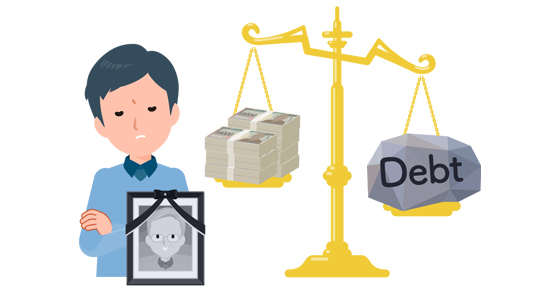One question the family of a deceased person often asks is: What happens to debt after a person dies? It’s important to realize that a person’s debt doesn’t simply vanish after his or her death.
An estate’s executor or beneficiaries generally aren’t personally liable for any debt. The estate itself is liable for the deceased’s debt. This is true regardless of whether the estate goes through probate or a revocable (or “living”) trust is used to avoid probate. Contrary to popular belief, assets held in a revocable trust aren’t shielded from creditors’ claims.
Assets and debts
Generally, an estate’s executor is responsible for managing the deceased’s assets and debts. A personal representative can also carry out this task.
With respect to debt, the executor should take inventory of the deceased’s debts, evaluate their validity and order of priority, and determine whether they should be paid in full or allowed to continue to accrue during the estate administration process. In some cases, debt that’s tied to a particular asset — a mortgage, for example — may be assumed by the beneficiary who inherits the asset.
Certain assets are exempt, however. These include most retirement plan accounts, life insurance proceeds received by a beneficiary and jointly held property with rights of survivorship that passes automatically to the joint owner.
Also, assets held in certain irrevocable trusts, such as domestic asset protection trusts, may be shielded from creditors’ claims. The extent of this protection depends on the type of trust and applicable law in the jurisdiction where the trust was created.
Assuming the deceased had a will, the estate’s assets generally are used to pay any debts in this order:
- Assets that pass under the will’s residual clause — that is, assets remaining after all other bequests have been satisfied,
- Assets that pass under general bequests, and
- Assets that pass under specific bequests.
Note that some states have established homestead exemptions or family allowances that prohibit the sale of certain assets to pay debts. These provisions are designed to give a deceased’s loved ones a minimal level of financial security in the event the estate is insolvent.
When debts are greater than the estate’s value
If an estate’s debts exceed the value of its assets, certain debts have priority and the estate’s executor must pay those debts first. Although the rules vary from state to state, a typical order of priority is:
- Estate administration expenses (such as legal and accounting fees),
- Reasonable funeral expenses,
- Certain federal taxes or obligations,
- Unreimbursed medical expenses related to the deceased’s last illness,
- Certain state taxes or obligations (including Medicaid reimbursement claims), and
- Other debts.
Secured debts, such as mortgages, usually aren’t given high priority. This is because the recipient of the property often assumes responsibility for the debt and the creditor can take the collateral to satisfy its claim.
Seek professional guidance
Managing debt in an estate can be complex, especially if the estate is insolvent. If you’re the executor of an estate, consult with us. We can help guide you through the process.
Theus Law Offices specializes in a complete range of estate planning and elder law services, including wills, trusts, probate, successions, estate administration, and probate litigation. If you need a Louisiana wills and trusts lawyer or succession attorney in Alexandria, Lafayette, Lake Charles, Baton Rouge, New Orleans, Shreveport, Monroe, or elsewhere in Central Louisiana, let our certified estate planning specialist and probate lawyers help you.










